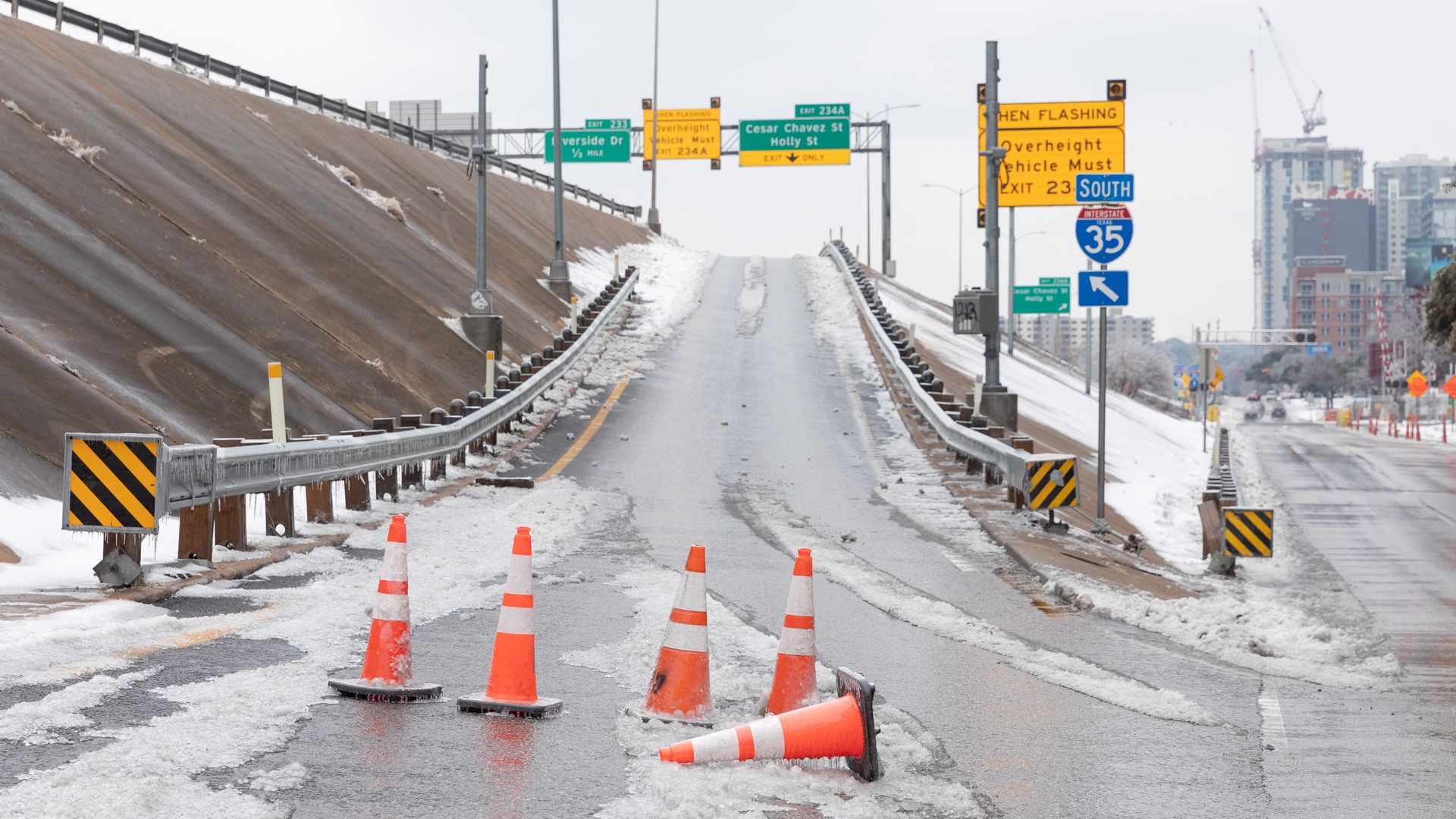Winter storm report offers 132 recommendations for future disasters
Add Axios as your preferred source to
see more of our stories on Google.

Traffic cones block the entrance to I-35 in Austin on Feb. 17, 2021. Photo: Thomas Ryan Allison/Bloomberg via Getty Images
As temperatures begin to dip, local officials are urging Austin-Travis County residents to create emergency kits and prepare for future disasters with a minimum seven-day supply of food and water.
Driving the news: That's one of the main findings and recommendations in the new after-action report for February's Winter Storm Uri, which left millions of Texans without power. At least 200 deaths have been attributed to the freeze.
The report offers 132 recommendations to better prepare the area for the next major disaster. Some of the key findings include:
- The need for a "whole community approach" to prepare for disasters. There were significant gaps in "implementation and coordination" between government, elected officials and community response operations during Uri, the report found.
- Recommendation: Revise disaster planning documents to fold in nonprofits, the private sector and other community-based organizations.
- There were gaps in planning and operations for vulnerable populations, including the unhoused, elderly and lower-income residents.
- Recommendation: Develop a policy that requires equitable availability and distribution of goods and services in a disaster.
- Staffing shortages hindered operations during the storm.
- Recommendation: Build a roster of disaster go-teams and require training for city and county staff.
- Lack of comprehensive planning created deficits in sheltering, feeding and other components of "mass care."
- Recommendation: Develop a "comprehensive operational disaster feeding plan."
Flashback: Temperatures dropped as low as 6℉ in Austin, a record low for the city. The area also experienced 144 hours of freezing temperatures and 6.4 inches of snow, a record for consecutive days of snow on the ground.
- Nearly 2,500 calls were made to the Austin Fire Department to report plumbing breaks, and the department responded to 739 traffic accidents.
What they're saying: "The City of Austin, like the state of Texas, was unprepared for a historic natural disaster layered on top of an international public health crisis," said Austin City Manager Spencer Cronk, who directed staff to conduct the analysis. "With every unprecedented event like this, there are lessons to be learned about our preparation, planning and response."
- "We intend to make improvements as a result of learning those lessons, and many of these improvements are already underway," Cronk added.
